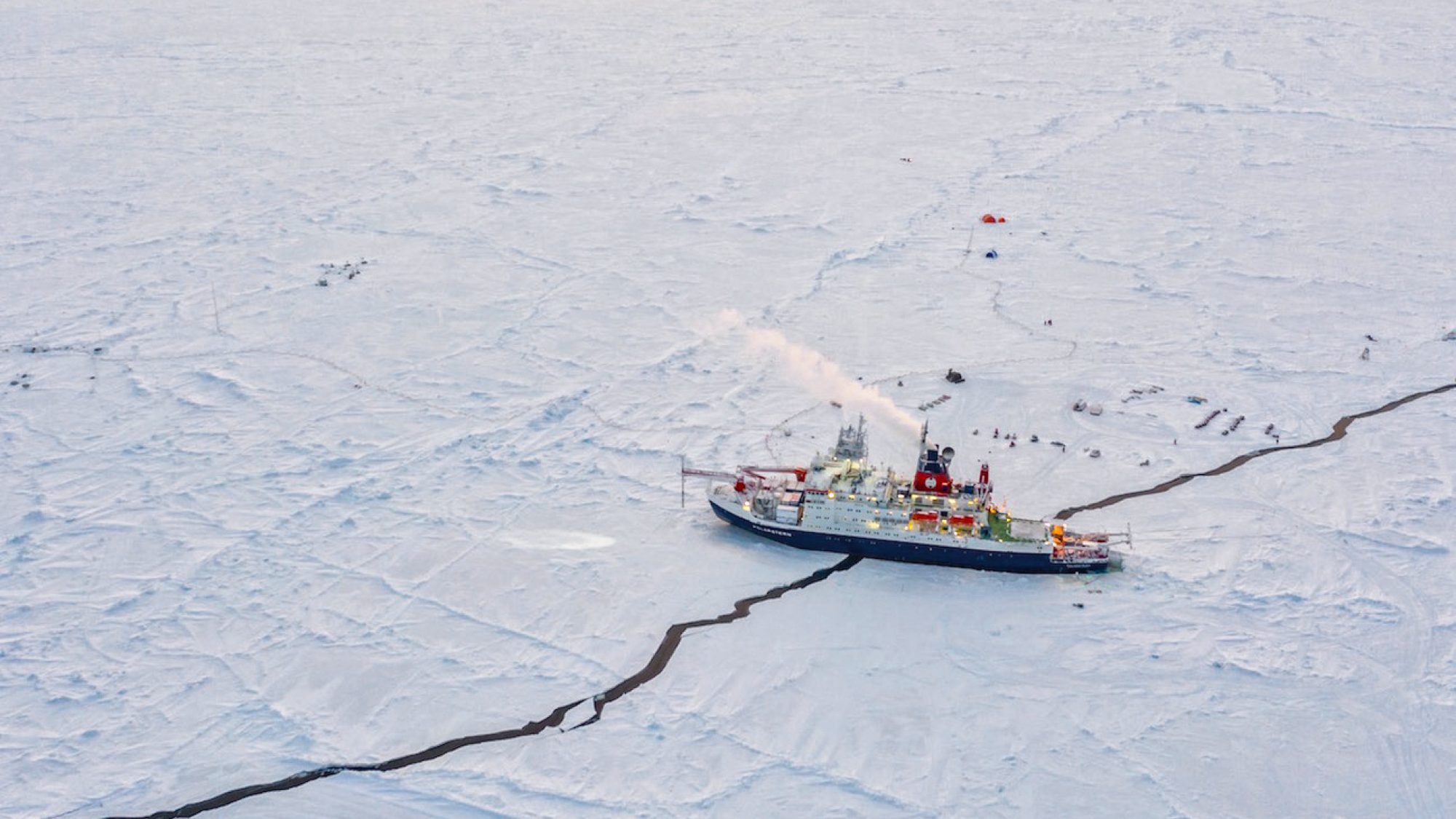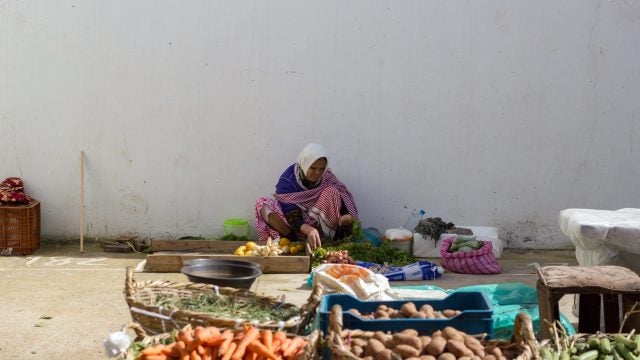
Title: Forced to Look East? Russia, China, India, and the Future of Arctic Governance
Since the start of the war in Ukraine, Moscow has signaled a firm interest in expanding its cooperation with China and India in the Arctic. Such a move could herald a new era in Arctic governance—one with a stronger influence from Asian countries. This essay examines what the suspension of the Arctic Council, the deliberate exclusion of Russia from the Council’s working groups, and the growing Western-led isolation of Russia means for the future of Arctic governance. It further considers the implications of the Russian Federation being forced to increasingly look eastwards on changing the governance mechanisms of the Arctic region.
The day that Russia invaded Ukraine—February 24, 2022—will go down as a turning point in the history of the twenty-first century. Russia’s war against Ukraine is not only a terrible event with unpredictable consequences for the future sovereignty and agency of an independent nation-state, but it also has influence far beyond Ukraine’s borders. In fact, the conflict has already interfered with what was once hailed as an exceptional feat in international relations: the successful and decade-long cooperation of eight states with territories north of the polar circle.
These cooperation efforts, particularly under the umbrella of the Arctic Council, are now in jeopardy. In light of Russia’s attack on Ukraine, the remaining seven Arctic states (Canada, Denmark, Finland, Iceland, Norway, Sweden, and the United States) have gone from pausing participation in to excluding Moscow from some of the Arctic Council’s activities—thereby casting doubt on the durability, effectiveness, and desirability of its consensus-based modus operandi.[1]
Meanwhile the role of Asian states in Arctic governance has been a pressing issue as China, India, Japan, Singapore, and South Korea have all been vying for greater influence over Arctic regional affairs since their acceptance to the Arctic Council as observer states in 2013. To this end, they have all increased their commercial presence in the Arctic over the past decade by investing in various endeavors ranging from (maritime) capacity building initiatives to extractive projects. While Arctic states have been receptive to the inflow of capital, they have proven less enthusiastic about the participation of these Asian states in agenda-setting practices and in the formation of rules of conduct in the region. Instead, they have preferred to retain a high degree of exclusivity in policymaking rights and privileges and limited the role of non-Arctic nations in the Council’s processes.
In the wake of the Russian invasion of Ukraine, this state of affairs could undergo a drastic change. After an initial pause, the Arctic Council has now resumed its activities without Moscow. As Western sanctions cut Moscow off from the global market, Russia will likely be inclined to work more with non-Arctic states, especially China and India, in pursuit of its regional developmental goals. A joint initiative in the Arctic from these three states is even more probable due to their shared strategic interests in the region’s vast resources. More importantly, the three states represent what some label as grieved civilizational powers. As such, their cooperation could be facilitated by their shared frustration with what they consider a Western double standard in imposing sanctions and the West’s selective adherence to international law; a grievance that explains why both China and India have so far refused to outright condemn the invasion of Ukraine.
Russia began the securitization of its Arctic economy in 2014 when Western powers imposed heavy sanctions on the country for its illegal annexation of Crimea. By prioritizing self-reliance and partnership with Asian countries over the West, Moscow sought to insulate the development of its Arctic regions and resources from Western sanctions—an initiative that seems to have had mixed results. On the one hand, China and India have continued to purchase Russian oil and seem adamant to work with the Russian Federation in executing its Arctic hydrocarbon developmental plans. On the other hand, Japan and South Korea have decided to join forces with the West in enforcing sanctions against Russia. Moreover, and in what could be a major blow to Moscow’s Arctic LNG 2 project, South Korean shipbuilder, Deawoo, has cancelled the construction of an already ordered Liquefied Natural Gas (LNG) carrier.
Arguably, no other country benefits more from the current confrontation between Russia and the West than China. China now has the opportunity to increase its power over Russia, thereby reaffirming its status as the superior party in the context of its bilateral relationship. In fact, the more isolated Russia becomes, the more reliant it will be on China. Thanks to Western sanctions, for instance, Russia is ever more dependent on China as a financial investor and, perhaps more interestingly, a supplier of strategic civilian technology including, but not limited to, 5G systems. Moreover, China is already Russia’s largest foreign partner in the Arctic in regards to energy and in the aftermath of the war in Ukraine this collaboration can only grow. Notwithstanding its awareness of Russia’s past opposition to Chinese presence in the Arctic, Beijing reaps a strategic advantage in increased Russian isolation as it brings Moscow closer to its orbit, increases Chinese bargaining power when demanding price discounts, and enables China to further diversify its trade routes and energy supplies. Such advantages were on clear display after Russia’s annexation of Crimea when Beijing wholeheartedly committed itself to the Yamal LNG project whereby “a combination of Chinese investments, gas purchase contracts, loans, and technology made possible the completion of this unprecedentedly complex project.”
Similarly to China, India has so far refused to enforce Western sanctions on Russia. For one, New Delhi sees a unique opportunity in the current standoff between Russia and the West to substantially increase its energy security by buying Russian oil and gas at a discounted price. With close to 85 percent of its military hardware of Russian origin, moreover, cutting ties with Moscow would greatly jeopardize India’s national security, making it a non-starter in the short to medium term. At play is also China’s growing ties with Moscow and New Delhi’s desire to ensure that Sino-Russo relations do not come at the expense of its own relations with Russia. In addition, India shares similar views on extended sovereignty with Russia, and is thus reluctant to criticize Moscow’s actions in Ukraine in order to avoid undermining its own stance on Kashmir; a reservation that could also explain its muted reaction to Beijing’s posture towards Hong Kong and Taiwan.
Contributing to Russia’s efforts in developing the Arctic region is of great importance to India partly because the government is keen on utilizing the commercial benefits of a shorter maritime passage via the Northern Sea Route. New Delhi’s Arctic engagement is also motivated by its desire to lock in meaningful Russian commitment to the completion of an extended version of the long-stalled North–South Transport Corridor which would ultimately deliver Arctic oil and gas to India. India’s involvement in the Arctic is also closely linked to its concerns that Beijing’s enhanced polar presence will distract the United States from the Indo-Pacific region. Officials in India worry that increased Chinese presence in the Arctic will effectively bring two of the US’s strategic foes, China and Russia, to the United States’ own Arctic backyard; a development that undermines the long-cherished principles of the Monroe Doctrine. The concern is that such a development could prompt a rethinking amongst American strategists to pay more attention and devote more resources to the Arctic and away from Indo-Pacific.
As Western financial sanctions begin to take hold, most Western lenders and companies have either departed from the Russian market or paused operations there. This exodus provides a much welcomed opening for Chinese and Indian entities to delve deeper into the Arctic, taking full advantage of President Putin’s agenda for the development of Russia’s Arctic zone. Meanwhile, efforts at establishing an alternative to the Arctic Council or resuming its activities without Russia could prompt Moscow to respond by establishing an alternative regional governing body with Beijing and New Delhi. Such a move could polarize regional governance and hinder effective decision making on region-wide issues, squeezing the Arctic’s smaller states—Denmark, Finland, Norway, Iceland, and Sweden—out of decision-making processes, and exposing the region to the dynamics of Chinese-Indian and Chinese-American power rivalries.
Above all, Arctic governance could become more Asianized due to Russia’s increased focus on its Asian identity in foreign affairs. Russia has always been part of Asia but historically, strategic decision-making in Moscow has been influenced more by the European element of its national identity. As a direct result of Western-led sanctions and Russia’s decoupling from the global economy and Western dominated global organizations, Moscow seems to be left with no other option but to tap into its Asian identity when formulating its foreign policy initiatives. It is thus not too far-fetched to imagine the emergence of competing governing bodies in the Arctic, some of which will either be dominated by Asian powers or will seek to normalize and promote a distinctive Asian view on the Arctic. This could further translate into endorsing the role of non-Arctic states in regional affairs and eventually lead to the often-raised spill-over effects of global US-China or US-Russia rivalry into the Arctic. In addition, the mere emergence of such competing discourses, let alone governing organs, will most likely increase the trust gap between the seven other Arctic Countries (A7) and Russia and could lead to the eventual demise of the Arctic Council.
Looking ahead, the best-case scenario would be to display a high degree of pragmatism and resume the working of the Arctic Council with the full participation of the A8. However, this is likely not a viable option due to the low trust between Russia and the West, and because it could heighten sensitivities amongst Eastern European nations. It could also prove unpopular with the electorates in the Western Arctic nations and undermine current efforts at delegitimizing Moscow on the world stage by providing it with a degree of legitimacy. Seeing the lack of good alternatives to choose from, the focus ought to be on the least disadvantageous course of action.
One such possibility lies in the form of preemption: isolating the Kremlin by preempting its outreach to Asia and incentivizing Asian states to work with the Western members of the Arctic Council while simultaneously warning them of severe sanctions should they continue to pour money into Russia’s Arctic projects. To this end, the recently held Second India Nordic Summit, during which Arctic cooperation was discussed, represents an important step in the right direction. Still, doing so involves hard strategic tradeoffs as it would require the Arctic states to give up on the notion of exclusivity and dial down on their strategic competition with Beijing and New Delhi. This course of action offers a way forward with less Russian influence in the Arctic but it does not prevent the expected rise in Asian, and more broadly, non-regional actors’ influence in the Arctic.
[1] In order to clarify: all projects re-started in June 2022 are projects approved before the pause came into effect and without initial Russian participation. This means that while coordination activities of the re-started projects are happening, all AC official meetings as well as the work of the Working Groups are still on pause – and so are all projects with Russian participation. And yet, even though the established Rules of Procedures have been followed by the A7, the decision not to re-start projects with any Russian participations means in our opinion an exclusion of the Russian Federation – if direct or indirect is anyone’s guess.
…
Nima Khorrami is a research associate at The Arctic Institute – Center for Circumpolar Security Studies in Washington, DC, and at the OSCE Academy in Bishkek. His research lies at the intersection of geopolitics, technology, and infrastructural development.
Andreas Raspotnik is a senior fellow at the Fridtjof Nansen Institute in Oslo, Norway and the Austrian Marshall Plan Fellow at the Wilson Center in Washington, DC. He is also a senior fellow at The Arctic Institute – Center for Circumpolar Security Studies and primarily researches the European Union’s Arctic policy.
Image Credit: Manuel Ernst, CC by 3.0
Recommended Articles

This paper examines the interrelated crises facing the Maghreb region: water scarcity and gender inequality. It describes the current approach towards addressing water scarcity and how incorporating women’s voices into…

This article compares U.S. and Chinese approaches to artificial intelligence (AI) exports in Africa and examines how these disparate approaches have produced both downstream benefits and challenges for the region.

On May 20, 2025, the World Health Assembly unanimously adopted the World Health Organization (WHO) Pandemic Agreement, an international treaty designed to strengthen pandemic prevention, preparedness, and…